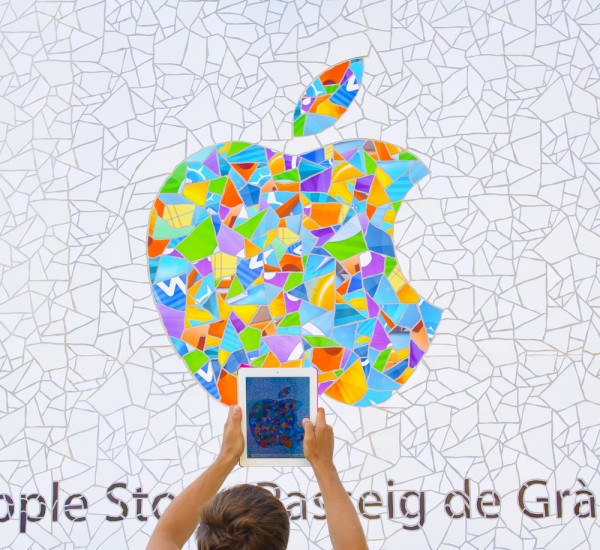You can forget iPad mini

I did something quite shocking yesterday -- talk to my boss on the phone. Yes, we both occasionally get sentimental about such old-fashion communications. Among the topics: iPad mini, which is perennial rumor topic recently. Neither of us could quite fathom why or for what price a smaller Apple tablet makes sense. A new survey makes iPad mini all the more perplexing, and all the less a good idea.
According to an August TechBargains.com survey of 1,332 shoppers, 50 percent wouldn't buy iPad mini, while 45 percent would purchase iPhone 5. Meaningful context: The shopping comparison site conducted the survey before either product was announced, equally gauging sentiment based on rumors. Only 18 percent of respondents would buy the tablet. But that low number only hints at the deep level of disinterest.
"Given Apple’s recent success it would be easy to assume that all new Apple products will be wildly popular. Our survey results indicate that theory is no longer the case", Yung Trang, TechBargains.com president, says. "According to our survey respondents, the so called iPad Mini will not be highly coveted because consumers are questioning the necessity of a smaller iPad, especially if they own an iPad or an iPhone".
Calling Cannibals
That's my problem, too. A 7-inch or 8-inch iPad doesn't fit right in the lexicon of Apple mobiles. iPhone 5, with its 4-inch screen, ranges in price from $199 to $399, while iPad goes from $499 to $829. Surely Apple wouldn't price the device any lower than $299, and $199 or less is where the device needs to be given Amazon Kindle Fire HD and Google Nexus 7. But even at $299, iPad mini risks cannibalizing larger Apple tablet sales, which the company has far from exhausted.
That's the key point. The tablet is still a huge growth market. Apple hasn't yet fully capitalized sales. IDC predicts 1.2 billion smart device -- connected PC, tablet and smartphone -- shipments this year and 1.4 billion in 2013. Shipments should top 2 billion by 2016, when tablet share will be 13 percent, up from 10 percent this year and reduce PC share to 24 percent from 31 percent. Meaning: The market has lots of headroom yet to grow.
Under Steve Jobs' leadership, Apple methodically nursed iPod revenues by introducing lower-priced models only after maximizing revenues among costlier tiers. iPad mini would break that proven pattern. I think it's way too soon for Apple, which has shown with Macs lots of people will pay more, to introduce a smaller, lower-cost model. There's too much risk iPad mini will cannibalize the larger model's sales, while offering little market share benefits.
The TechBargains.com survey bears this out. Existing Apple device owners are most likely to purchase iPad mini (27 percent), while those owning Kindle Fire or no tablet at all equally plan to buy (16 percent). These are not encouraging numbers and granted only represent a small sample from a shopping comparison site.
Shifting Strategy
When Jobs assumed control of Apple in early 1997, he almost immediately cut product lines. That approach proved a sensible strategy. By offering less, Apple could do more for customers and shareholders by reducing manufacturing and distribution costs and decreasing shopping complexity. iPad mini would add unnecessary complexity to the product lineup, increase manufacturing and distribution costs and quite likely cannibalize sales of a successful, high-margin product.
Something else: Jobs tended to make decisions that defied competitive concerns, whereas iPad mini could only be in response to them. If successor Tim Cook takes such a "look at what the competition is doing" approach, it would mark a fundamental change in Apple's longstanding business model. I can see why he might look at competition and worry.
According to Pew, the US tablet has fundamentally changed in just one year. Twenty-five percent of Americans regularly use a tablet -- 22 percent owners, 3 percent sharing another in the household -- based on a summer survey. A year earlier, Apple had overwhelming tablet share -- 81 percent. But by August, iPad had dropped to 52 percent share, with Android tablets rising to 48 percent from 15 percent year over year. Thirty-two percent of tablet owners purchased in 2012.
Apple's dilemma, at least in the United States: Market dynamics are rapidly changing and time to lock in customers is early on, before they purchase apps and peripherals and commit their personal stuff to tablet platform or cloud service. But is that reason enough to do a smaller Apple tablet now? I don't think so, and the TechBargains.com survey strongly suggests iPad mini is a foolhardy endeavor.
Photo Credit: catwalker/Shutterstock